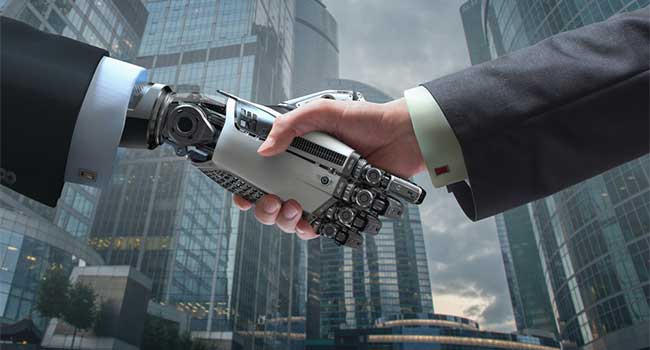Japanese work culture has long been known for strict business practices. A mere 25% score in the McKinsey Health Institute’s assessment underscores the challenge of maintaining positive employee experiences in the country.
In today’s digital era, advanced technologies such as Artificial Intelligence (AI) and automation stand as potential game-changers in addressing employee experience issues in Japan. These innovations possess the transformative power to cultivate a more resilient and empowered workforce.
Japanese employees continue dissatisfied with their jobs
Recent findings from the McKinsey Health Institute show that Japan has the lowest employee well-being compared to 30 other nations globally. The report evaluates nations by assessing their employment work experience and well-being across physical, mental, social, and spiritual dimensions, aiming to establish the connection between favorable work environments and health. With an alarming 77% of respondents reporting lower health levels and increased burnout, Japan faces a significant challenge in the Asia-Pacific region.

Moreover, Gallup’s State of the Global Workplace report highlights Japan’s struggle with employee engagement. In 2022, just 5% of Japanese workers were actively engaged in their roles, contrasting the global average of 23%.
Empowering positive employee experience in Japan – Technology is the key
Amidst these challenges, technology emerges as a critical factor in fostering employee experience. Particularly, the adoption of AI and automation has the potential to revolutionize work processes, enhancing the overall employee experience in Japan. McKinsey estimates that more than half of work activities in Japan are repetitive, two-thirds of which could be automated.
Businesses have the opportunity to stay ahead of the curve. In a study conducted in 2017, McKinsey Global Institute revealed that Japan had a greater potential for automation compared to countries like Germany and South Korea. Be, automation had the potential to replace approximately 56 percent of the tasks performed in Japan, allowing companies to reduce operation costs and enhance productivity even in a declining workforce. Additionally, Qualtrics 2024 EX Trends Report shows that 53% of actively involved employees expressed comfort with AI in the workplace.

According to survey by VentureBeat, 79% of workers believed that automation tools had boosted productivity, with 47% reporting a reduction in mundane tasks. Furthermore, 88% expressed confidence in the reliability of automation systems for executing precise, error-free operations. Interestingly, Fujitsu’s report reveals that 76% of Japanese companies have revamped their workforce within the past three years, indicating a significant investment in technology and automation to facilitate this transformation.
How can automation and AI supercharge employee experience in Japan?
The benefits of embracing AI and automation extend far beyond efficiency gains.
Optimize workflows
Integrating automation and AI can optimize workflows by simplifying repetitive and time-consuming tasks. Hence, workers can dedicate their time to more critical and meaningful work, resulting in greater productivity and job satisfaction.
Enhance operational efficiency
AI can monitor and analyze processes and data to identify patterns and trends, make predictions, and suggest improvements to streamline operations. This comprehensive reporting and analytics data allows employees to eliminate bottlenecks, streamline their tasks, and simplify their work.
Meanwhile, automation capabilities improve operational efficiency by automating tasks and fostering a work environment that is more agile and responsive.

Track team performance
AI-driven reporting and analytics offer real-time insights into employee performance, enabling businesses to recognize strengths and areas for improvement. By leveraging AI to understand team dynamics, organizations can break down data silos and enhance interdepartmental collaboration.
Besides, automated feedback collection promotes a culture of continuous improvement, contributing to a workplace that values employee opinions.
Streamline onboarding processes
Traditional onboarding processes are often slow and inefficient, hindering new hires’ productivity and causing frustration. Automation and AI streamline this process, ensuring new employees receive the necessary support to do their roles efficiently.
Furthermore, the implementation of automation and AI enables businesses to personalize the onboarding experience for individual employees, fostering a sense of value and increasing engagement.

Monitor employee well-being
AI and automation also play a crucial role in monitoring employee well-being. By analyzing behavior patterns, these technologies can detect signs of burnout or stress early on, enabling timely interventions and support. This proactive approach shows the organization’s commitment to increase employee experience and mental wellness.
Wrapping up
As businesses navigate the complex and challenging business landscape in Japan, the integration of AI and automation emerges as a strategic imperative. By embracing these emerging technologies, organizations can foster a culture of innovation and resilience.
References
Japan’s Employee Well-being Ranked Lowest in Global Survey
11 ways to use AI for a better employee experience
The future of Employer Branding: How AI is transforming the employee experience
Let’s reimagine the workforce: how Japan measures up
Employees in Japan may be some of the unhappiest in the world
akaBot (FPT) is the operation optimization solution for enterprises based on the RPA (Robotic Process Automation) platform combined with Artificial Intelligence, Process Mining, OCR, Intelligent Document Processing, Machine Learning, Conversational AI, etc. Serving clients in 21+ countries, across 08 domains such as Banking & Finances, Retail, IT Services, Manufacturing, and Logistics…, akaBot is featured in “Voice of the Customer” for Robotics Process Automation” by Gartner Peer Insights, G2, and ranked as Top 6 Global RPA Platform by Software Reviews. akaBot also won the prestigious Stevie Award, The Asian Banker Award 2021, Everest Group’s RPA Products PEAK Matrix® 2023, etc.
Leave us a message for free consultation!

